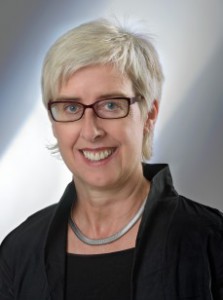 “It is not easy living as a girl or young woman in low- and middle-income countries today. Adolescents are at higher risk of illness and even death from pregnancy related complications, and girls and young women shoulder a disproportionate amount of the world’s global disease burden. In addition, between 8 percent and 25 per cent of girls in sub-Saharan Africa drop out of school early because of unintended pregnancy and it is estimated that one woman dies every two minutes due to complications in childbirth — and many of these are adolescents.
“It is not easy living as a girl or young woman in low- and middle-income countries today. Adolescents are at higher risk of illness and even death from pregnancy related complications, and girls and young women shoulder a disproportionate amount of the world’s global disease burden. In addition, between 8 percent and 25 per cent of girls in sub-Saharan Africa drop out of school early because of unintended pregnancy and it is estimated that one woman dies every two minutes due to complications in childbirth — and many of these are adolescents.
Protection through contraception
What are the factors prolonging this situation? While the underlying causes are complex and varied, issues that play a significant role include: gender inequity; a lack of services and access to affordable, appropriate and effective methods of contraception; access to and knowledge of their sexual and reproductive health and rights (SRHR); and a lack of high-quality comprehensive sexuality education for young adolescents.
There are steps that we can take to support these young women to empower themselves and take control of their own sexual and reproductive health. What we have learned, in our many years of working with young people in Eastern Africa, is that the best communicators for young people are young people themselves. We have found that peer-to-peer education and counselling is a hugely effective way to talk to young men and women about their contraceptive options and their sexual health. Working with health professionals and community health volunteers to support them in providing the necessary knowledge and access to contraception and family planning advice is also crucially important, as is engaging the whole community in an ongoing conversation about sexual and reproductive health.
Youth Champions for contraception and SRHR
Together with the support of Bayer HealthCare and as part of World Contraception Day, DSW has been working with its Youth-to-Youth club network in Uganda to do just this through the GeNext project. The goals of GeNext are to empower young people to champion World Contraception Day and its messages, and to support young people while providing them with the knowledge to make informed choices on family planning and SRHR. Through the project we have trained 60 Youth Champions to spread the message in their communities. They in turn – through peer-to-peer education – have trained 60 more young people in their local communities and in DSW youth clubs. We have also worked with local health workers to train them on the provision of youth-friendly SRHR services. And I am happy to report that since its inception, the project has reached more than 10,000 young people in Uganda through a number of outreach activities, with a plan to reach 18,000 young people and 1,000 community members with SRHR information before the end of the project period. All these youth champions bring with them the same message: that, with enough information and access to youth friendly services, young people have the potential within themselves to take control of their health and their own futures.”
Renate Baehr, DSW Executive Director

